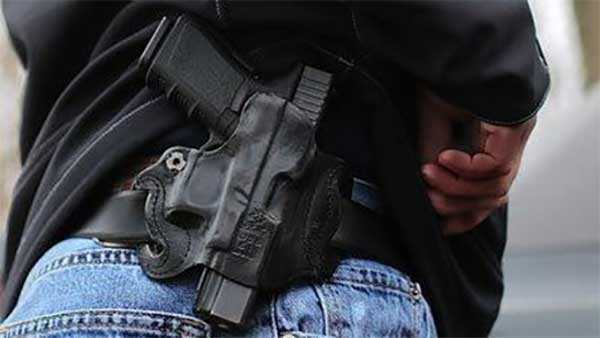

Washington DC – -(Ammoland.com)- On Tuesday, July 25 2017, The D.C. Circuit Court of Appeals issued its anticipated decision in the case of Grace v. District of Columbia, and issued a permanent injunction prohibiting D.C. from enforcing its “good reason” (i.e., a special need beyond self-defense) requirement for the issuance of a CCW.
For decades, Washington D.C. barred residents from even owning or possessing handguns. But after the Supreme Court famously struck down that ban in District of Columbia v. Heller in 2008, D.C. responded by enacting a whole new set of restrictions, including a total ban on carrying firearms in public for self-defense.
This carry ban was ultimately challenged in the case of Palmer v. District of Columbia, and in 2014, a federal district court judge declared the ban unconstitutional. Notably, the Palmer ruling largely relied on the 3-judge panel opinion in the Peruta v. California (formerly Peruta v. County of San Diego) case, which held that restrictions denying law-abiding citizens the right to carry a firearm in public are unconstitutional.
Rather than appeal the Palmer decision and risk a Supreme Court ruling against them, D.C. politicians decided to enact a restrictive and arbitrary “may issue” licensing scheme, much like San Diego’s[and New Jersey}. The new law required D.C. residents to demonstrate a substantial “good reason” to obtain a permit to carry a concealed firearm.
And just like the San Diego Sheriff, D.C. refused to recognize self-defense as a satisfactory reason to obtain a permit—a position some California residents are all too familiar with.
D.C.’s new law prompted even more litigation, and in May 2015, a federal district court issued a preliminary injunction prohibiting D.C. from enforcing its restrictive “good reason” requirement. Unfortunately, that case (Wrenn v. District of Columbia) was litigated before a judge who did not have proper authority to hear the case, which prompted the D.C. Circuit Court of Appeals to quickly overturn the injunction. In response, with support from the National Rifle Association, several D.C. residents filed another lawsuit, the Grace case.
Today the Court ruled in both the Grace and Wrenn cases in a monumental decision that upheld law-abiding citizens right to keep and bear arms.
As stated by the Court, “history matters, and here it favors the plaintiffs.” For in reading the Second Amendment, the Supreme Court’s reason in Heller, and early historical sources, the Court concluded that “the individual right to carrying common firearms beyond the home for self-defense—even in densely populated areas, even for those lacking special self-defense needs—falls within the core of the Second Amendment’s protections.” As a result, the Court ruled D.C.’s restrictive “may issue” policy for the issuance of a CCW permit unconstitutional.
The CRPA Foundation, along with the Western States Sheriffs’ Association, International Law Enforcement Educators and Trainers Association, the Law Enforcement Legal Defense Fund, the Law Enforcement Action Network, the Colorado Police Protective Association, the International Association of Law Enforcement Firearms Instructors, and the Law Enforcement Alliance of America, Inc., joined the Grace lawsuit as amicus curiae. To read the CRPA Foundation’s amicus brief, click here.
The National Rifle Association of America, Inc., also joined the lawsuit as amicus curiae. To read the NRA’s amicus brief, click here.
NRA and CRPA are fully committed to fighting for the right to keep and bear arms in California and across the nation. To that end, NRA and CRPA have already filed a new lawsuit challenging California’s restrictive “good cause” requirement as well as the state’s general ban on carrying firearms in public, whether openly or concealed. That lawsuit, titled Flanagan v. Harris, is currently in the early stages of litigation. And although the Supreme Court declined to hear the Peruta case, it is only a matter of time before the Second Amendment comes before the Supreme Court again. The Grace case may very well be that vehicle.
Remember: a win on the Second Amendment in any case, anywhere, will benefit California gun owners if it is upheld in the United States Supreme Court. A Supreme Court victory would overturn bad precedent in California, and could lead to “shall issue” in California.
Make sure you are subscribed to NRA and CRPA email alerts to keep informed on Grace and Flanagan, as well as other important Second Amendment issues.

You can bet those men in congress (DC) who have protective details don’t have slingshots assigned to them
The STUPIDITY rests in allowing ANY government in way shape or form to control the Second Amendment RIGHTS of American Citizens.
good